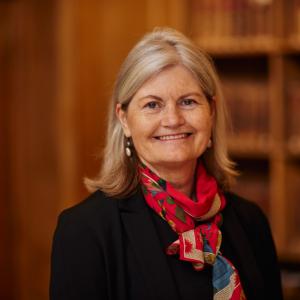Bonavero Institute of Human Rights brings together Oxford academics within national Modern Slavery Centre
Associated people
The Prime Minister has today announced the investment of £10million of public funding from UK Research and Innovation’s Strategic Priorities Fund to create an ambitious new Policy and Evidence Centre on Modern Slavery and Human Rights. The Centre’s job will be to bring about a step change in our understanding of modern slavery and to transform the effectiveness of the legal and policy framework which is designed to eradicate it.

The new research centre, funded by UK Research and Innovation (UKRI) Strategic Priorities Fund and led by the Arts and Humanities Research Council (“AHRC”), in collaboration with other research councils, will bring together academics, policy-makers, businesses and charities to drive forward new studies, share knowledge, and improve collaboration both at home and overseas, to further strengthen our response. The Bonavero Institute of Human Rights will work with an impressive multi-disciplinary team of academics within Oxford in contributing to this broader multi-disciplinary Centre. At the national level, the Centre will be led by the Bingham Centre for the Rule of Law and will also include the Rights Lab at the University of Nottingham, the Wilberforce Institute for the study of Slavery and Emancipation at the University of Hull, the Centre for the Study of International Slavery at the University of Liverpool, and the Alan Turing Institute, the national institute for data science and artificial intelligence, in London.
The purpose of the new Centre is to provide independent, impartial and authoritative insight and analysis on modern slavery, based on high quality research, of real practical utility to policymakers, legislators, international organisations, businesses, civil society and the public. It will bring together existing work and commission new and innovative research on modern slavery to enhance understanding of this complex and evolving threat and to significantly improve the evidence base which underpins legal and policy responses.
The Centre will be independent from Government. To ensure that its work is policy relevant, and capable of informing, influencing and where necessary challenging Government policy, it will work closely with policy-makers across Government. The Centre will focus its efforts on improving the evidence base on four key themes:
- Preventing modern slavery
- Transparency in supply chains
- Understanding survivor needs and enhancing victim support
- The effectiveness of legal enforcement measures.
The Centre will be highly collaborative in nature and will be seeking partnerships with non-academic partners with a strong interest in its work.
Executive Director of the AHRC, Professor Andrew Thompson, said “The centre will seek out solutions to the dehumanising and abhorrent crime of modern slavery by mobilising world-class research from the arts, humanities, social sciences and beyond. The centre will provide new independent, impartial insight and analysis into the causes and consequences of modern slavery – speaking to questions of prevention, enforcement, supply chains, victims’ recovery and survivor needs.”
Director of the Bingham Centre for the Rule of Law and the Director of the new Policy and Evidence Centre, Murray Hunt, said “The creation of the new Centre is an exciting opportunity to transform the effectiveness of legal and policy responses to the scourge of modern slavery, which shames humanity. The Bingham Centre is privileged to have the opportunity to work closely with some of the world’s leading experts to bring about this much needed step change.”
Director of the Bonavero Institute of Human Rights, Professor Kate O’Regan, said
The Bonavero Institute is delighted to be participating in the new Policy and Evidence Centre. As a newly established centre for research at the University of Oxford, the Bonavero Institute is able to draw on the many experts within the Law Faculty and across a range of disciplines in Oxford to undertake research into modern slavery. We look forward to collaborating with other team members to provide a sound evidence base to inform future policy responses aimed at curbing modern slavery.


